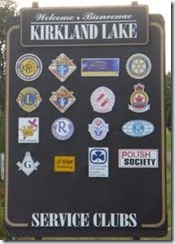 This continues our series outlining how the 10X2 philosophy helps you get better assignments
This continues our series outlining how the 10X2 philosophy helps you get better assignments
Enoch connected with people in a variety of ways. His expertise with gadgets enhanced his reputation as the “gadget guy.” He consulted with companies to program their web sites and design their computer systems. He also served on the downtown alliance council to improve businesses. He even volunteered for a community jobs program. He also joined a marketing group to help companies market more effectively. He even authored a book on finding a job. Enoch’s reputation for varied expertise connected him to hundreds of people and businesses who frequently said “Get Enoch!”
Connect Through Community Organizations
Community organizations and service clubs provide extraordinary opportunities to connect with 10 people a month. Many younger professionals resist joining because of the weekly commitment, reputation for older memberships, and social media as the preferred way of connecting. Nevertheless, traditional service clubs still offer excellent connections to influential people. Most also focus on a charitable endeavor allowing members to contribute to society.
Service organizations include:
- Rotary
- Women in Business
- Kiwanis
- International Women’s Club
- Lions
- Junior League
- Eagles
- Service Corps of Retired Executives (SCORE)
- Freemasons
Community organizations mostly include nonprofit, charitable organizations. You may volunteer to serve in the organization or on the board. Once again, they offer excellent opportunities to connect with other service-minded people. They also offer the sense of returning something to the community and altruism.
Typical organizations found in most communities include:
- American Red Cross
- Community Action Services
- United Way
- Community Food Bank
- Women’s and homeless shelters
- Fountain House (self-help programs)
- Circles Initiatives
- Boys & Girls Clubs
- American lung, diabetes, breast cancer, and other organizations focused on specific ailments
You may contact your local United Way to discover the breadth of nonprofit organizations in your community.
Other Methods of Connecting
We conclude this section focusing on connecting with 10 people a month with a reminder about:
Monday we begin discussing how to communicate your 10 value statements to management











